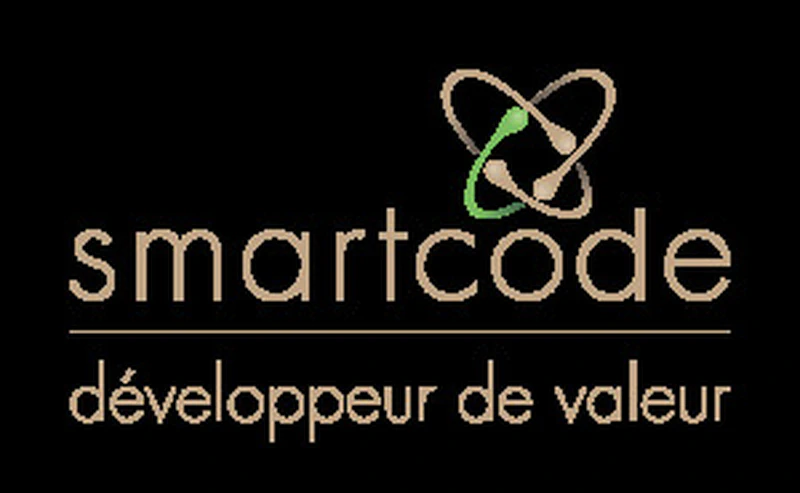Today I want to promote (!) the SmartCode offering which SmartView (my company) launched as an initiative in September. Nothing necessarily original, just an assembly that seems quite rare to me of a good approach that I associate with agility, and of which I am proud.

Having been doing project support for many years, we could say about fifteen, my companions and I (at SmartView) had sworn to ourselves to never -ever- deliver fixed-price projects (commitment to results) as this promise is a mirage in a client/supplier relationship, with all the frustrations that it induces. Specifically oriented towards consulting & training, SmartView therefore did not do projects. But we never stopped supporting them, advising them, helping them, delivering them. Often the battle against commitment to results would take place. Then it seemed to us that the majority of our contacts were awakening to the disgust of the classic project and its commitment to results. Too much suffering, too much denial, too much absurdity? Was this a key moment?
So we decided today to cross the Rubicon again: doing projects. But naturally by imposing criteria that will give them every chance of success. Making a project succeed is what? A successful project or product is when everyone is at least satisfied, at best happy.
The constraints we impose on ourselves and on our client are not numerous but they are fierce.
Important
SmartCode projects are important projects, otherwise why do them?
Commitment of means
SmartCode projects are necessarily a commitment of means (The only contract we will have will stipulate the profiles and daily rates associated). Commitment to results is a lie: you cannot predict a scope, a timeline, resources even 3 to 6 months in advance (even less if it’s longer). Commitment to results is harmful: it fossilizes the richness of the project or product. No space for innovation, performance, adaptation, uncertainty. Yet uncertainty and risk exposure are necessary for good project, product performance. This fossilization generates frustrations and absurdities.
Involvement
SmartCode projects are necessarily led by a product or project representative (let’s say the “product owner”) who comes from the client, and who allocates the time necessary for the success of the project or product. The involvement is strong. (They will be accompanied by a facilitator, a person who will apply our methodological precepts, who will carry our project and product experience)
Sharing
SmartCode projects are necessarily done in a mixed team: one part of the team is provided by the client, the other by SmartCode (internal to SmartView, or freelancers from our network). Our intention is to help the client part of the team progress towards our technology, methodological and cultural approach. Ideally the client team becomes autonomous.
On location
SmartCode projects take place at the client’s premises, at the heart of the product or project.
Dynamic team
A SmartCode team contains a maximum of 7 people (this includes the facilitator and the product or project representative). For large projects, we will propose a farm of teams.
Finished things
In return for the commitment of means mentioned above, the (mixed) SmartCode team commits to regularly delivering (2 to 3 weeks) finished things. If this is not satisfactory, the client can stop at any time the entire project.
Mature development
In its technological and cultural support, the SmartCode team sets up a mature development system: automated tests, continuous integration, TDD, BDD, etc. If the entire team is not mature, we accompany them towards this destination. We have communicated with many of our clients and contacts. The feedback is good. We continue to communicate. We plan to launch the first one for the beginning of the year.
The feedback received so far does not surprise us.
Mutual trust
- What do you mean you are on time and materials -commitment of means- and you ask me to be involved. I pay and I am responsible?
Yes, trust is essential. It’s your project. It is important. We must also have trust in you, we are a small structure and offering you to stop at any time the project or product is a risk for us (We will deliver finished things together every 2 or 3 weeks to allow you to judge).
Total cost
- It’s expensive, with a classic fixed-price project, I would get it for much less.
In appearance the cost is higher. But given the quality of the value generated in this type of project compared to the underestimated losses of the majority of fixed-price projects (commitment to results), no it is not expensive. It’s the right price for a real important project. (I remind you: if it is not important, have it done by others at a fixed price if you wish). With a project of this type you may be able to stop 2 months before the end with more value under your belt.
Involvement, again
- I don’t have time to get involved as you wish (at least 30% of their time for the product or project manager).
I remind you again: if this project or product is not important, have it done by others at a fixed price if you wish. If it’s important you will consider your involvement normal.
There you have it. See you soon perhaps around a SmartCode.
I remind you as an echo of this article written previously: on time and materials and agile
First official mention of SmartCode, August 13, 2012, here.